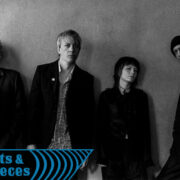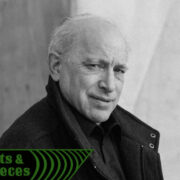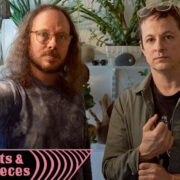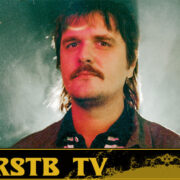Modern Nature 

Over the past few albums Jack Cooper has been steadily sliding away from the pop world that forged him. As Modern Nature took shape, it anchored itself cleanly at the crossroads of folk, jazz, and kosmiche. Open as they were, the works on How To Live, Annual, and the band’s debut EP still passed through the shadows of pop — hooked on groove, even as they hinted at shaking their tethers. Those ropes slipped even further on Island of Noise, an album that found Cooper at his most ambitious. The album also found him solidifying a team of improvisors that have now become the backbone of No Fixed Point In Space. The assembled players include longtime band staples Jeff Tobias (Sunwatchers) and Jim Wallis, with an expanded core that includes cellist Anton Lukoszevieze, Mira Benjamin and Heather Roche of Apartment House, Alex Ward (Spiritualized), Dominic Lash, and Chris Abrahams (The Necks). The ensemble is further enhanced with the inclusion of Julie Tipetts (nee Driscoll), returning to the studio for the first time in quite a few years.
Surrounded by trusted players, Cooper has set out to free himself of pop’s conventions, and more specifically its expectations. The album succeeds in that regard, unmooring itself from much of the band’s past pulse and sway in favor of following what Cooper describes as patterns found in nature. Tracks like “Murmeration” dive and bend gracefully, tracing the arc of the flocks they emulate. “Sun” creeps over the horizon, building its glow through the final moments. The sessions found Cooper devising his own set of notations for the pieces. Players were given some cue points, though largely the ensemble is left to explore their bounds and move as the moments took them. The results are an album that’s still pawing at jazz and kosmiche auras, while never feeling like it’s indebted to their structures.
The album breathes like a living thing — expanding and contracting, reacting to moments with sighs, flutters, and scatters of notes. The record shudders like dawn on the meadow, and leaves the listener with one of the band’s most inspired moments, the Tipetts-led closer “Ensō,” a microcosm of voice and winds that captures the spark of spontaneity that Cooper was looking for. It’s not a record for those looking to listen passively, but for those hoping for the erosive nature of music to leave them changed, it will certainly scrape a few layers from the cerebellum.
Support the artist. Buy it HERE.








